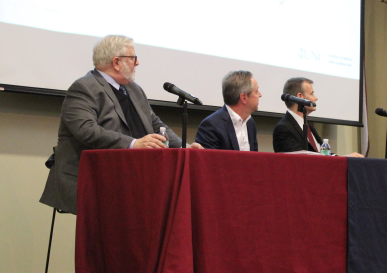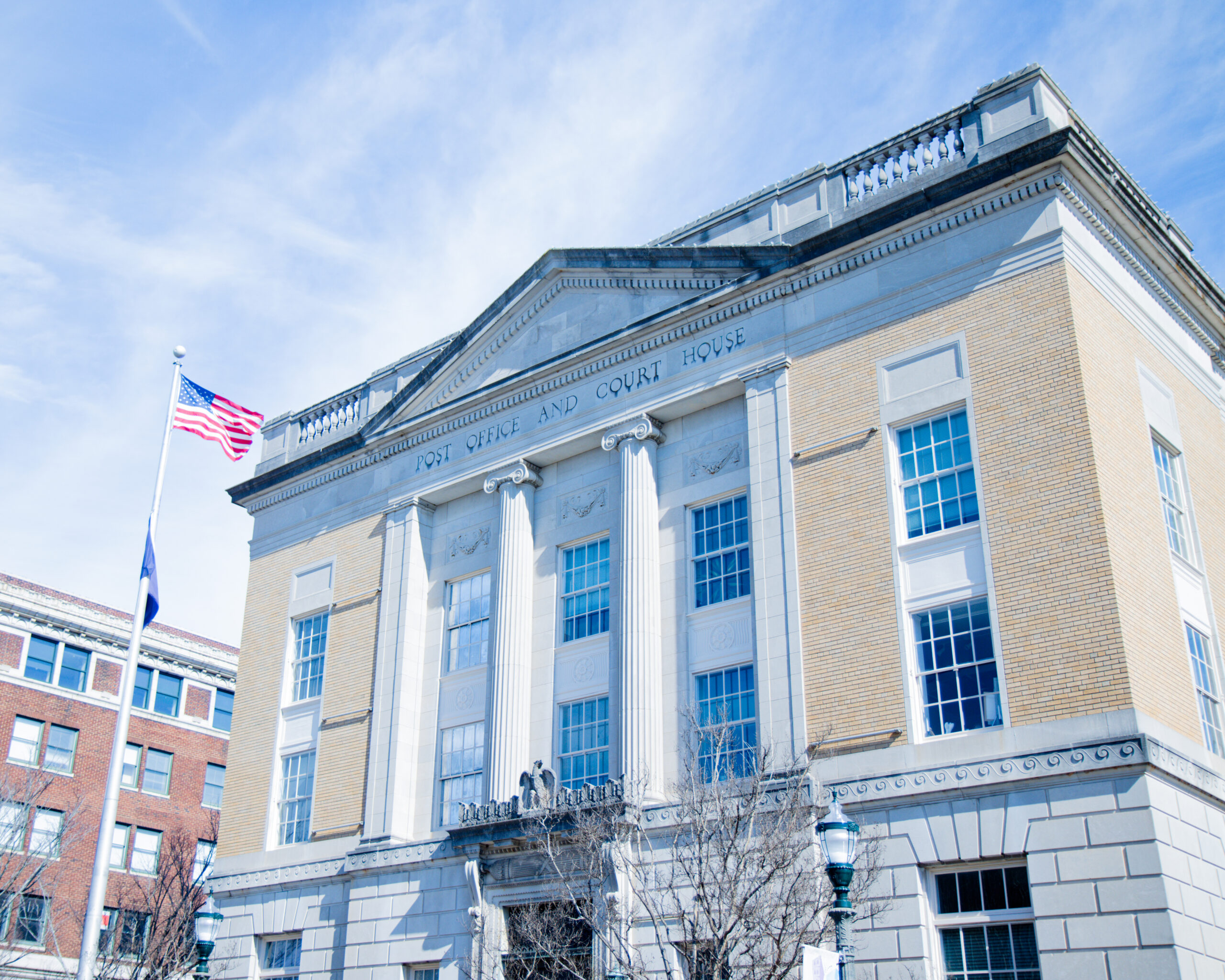Local newspapers are on the decline as more and more publications are forced to shut down or merge.
On March 26, The Future of Journalism welcomed a panel made up of Kelly Kaufhold, a professor of mass communication at Texas State University, Gene Policinski, chief operating officer of Freedom Institute and the Institute’s First Amendment Center, Graham Osteen, the executive editor of the Sumter Item to discuss where the industry is headed. The panel was moderated by Glenn Burkins, publisher and founder of Q City Metro. “The Future of Journalism” was part of the The News Literacy and the Future of Journalism series.
News Deserts
Burkins opened the discussion on the topic of news deserts. News deserts are areas that have no media sources specific to the local area. Since 2004, 1,800 newspapers have closed or merged in the U.S. When publications merge or shut down, there is a loss of coverage for community issues.
Being informed on a local level is just as important as being tuned in on the national level. Keeping up with the activity in Congress and the White House is important, however it is just as vital to be aware of what is happening in your town hall and state house. The decisions that are made here affect you directly and can have a bigger impact on your life. Communities that lose their local papers also lose out on a major way to get information about these decisions.
“We need to be an informed democracy to make intelligent decisions. You hear this and it’s a cliche about national politics, but it’s not always about national politics,” Kaufhold said. “It’s about your local budget, it’s about your traffic, where you’re going to park, where you’re going to work right here in South Carolina. If we don’t have a robust, vibrant local information source…then there’s a hole in the information you need to be free and self governing.”
Through the gloom, Osteen sees a bright potential future for newspapers.
“Good newspapers can survive anywhere if you’ve got the right people, if you’ve got the right business mix and you’re committed to trying to make them succeed,” Osteen said. “We think that there is a great future for them. When I say ‘the paper,’ I don’t mean just the paper. Obviously, I mean the website and the brand that’s built around the paper.”
He said digital initiatives, such as email newsletters and audience interaction focusing on the achievements of the community are ways he has found success in maintaining local papers.
“Build your brand by covering the community that way. That’s, I think, a good model for the future, if we can sustain that. I hope that we’ll all remain vibrant newspapers in the communities that they serve,” Osteen said.
User-generated content
Sometimes when it is noticed that there is a lack of coverage or attention to an issue in the community, a citizen will take it upon themselves to cover it. This user-generated content is produced voluntarily and typically by someone with no background in journalism. Policinski is wary of this type of coverage because of its natural arch of interest.
“When it’s not your job that you’ve committed to or your profession, what you get is someone who is very interested, often, in an issue or in a period of time-when their kids are in school. What happens is you have that arch that you don’t get when you have a person covering the school board full time,” Policinski said.
After the arch of interest is finished, for example when the child graduates or switches schools, there is no one to pick up where the parent left off. Even if someone were to pick it back up, there is no “institutional memory” to hold the school board, government, etc., accountable.
Another potential issue with user-generated content is activism. If someone feels so deeply about an issue that they create their own coverage for it, it can be difficult to remain unbiased.
“That’s a potential danger as well. Because as [Policinski] said, you end up with people who care very deeply about a topic and you hope that they’re able to put aside their bias or their deep interest,” Burkins said.
Balkanization of media
As people are turning to niche news sources as opposed to one objective source, the question of what partisan media is doing to our society arises. Burkins asked the panelists if they thought the balkanization, or division, of media was hurting the public.
Kaufhold consults news sources of all backgrounds, reading traditionally conservative publications while also visiting more liberal ones. He said he does not oppose to media with political leanings.
“It’s a mistake to think journalism has always been objective or journalism has never been profitable. Both of those things are wrong. I don’t object at all to balkanized, partisan media as long as I still have an objective source to go to,” Kaufhold said.
Policinski said he preferred “some media to no media” but there should be a baseline of truth connecting all newspapers, no matter the intended audience.
“I do think at some point we need to have a shared set of facts. I refuse to accept the idea that the markets we identify now, they’re markets of opportunity, but they are not the markets of a community,” Policinski said.
These hyper-specific newspapers, magazines, publications of any kind can tend to disregard the greater communities.
“The community exists together. We drive on the same streets; we go to the same schools. I worry that the opportunities are ignoring the communities, the broader communities. We have a history in this business of ignoring communities, of under-serving racial communities, sometimes religious communities. I’ll choose that system right now to get news out to people and to keep news flowing, but I think at some point we need to take the opportunity and make it community wide. I think that starts with the most local enterprises because you know your readers the best,” Policinski said.
To grow the local coverage that is necessary for a united and informed community, Osteen said dedicated reporters are critical.
“I think that we need people who are committed to the community that they are living in. That’s where it starts,” Osteen said.




